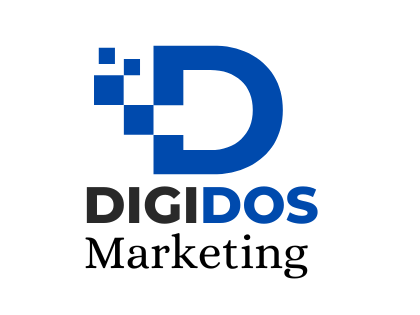Influencer marketing services are a form of marketing strategy that leverages individuals, known as influencers, who have a dedicated and engaged following on social media platforms or other online channels. These influencers are seen as credible and trusted figures within their niche or industry, and businesses collaborate with them to promote products, services, or brands to their audience.
Key components of influencer marketing services include:
- Identification of Influencers: Brands and marketing agencies identify influencers who align with their target audience and brand values. This involves researching influencers’ content, audience demographics, engagement rates, and authenticity.
- Campaign Strategy: Developing a campaign strategy that outlines the goals, messaging, and deliverables for the influencer collaboration. This may include promoting a new product, increasing brand awareness, or driving traffic to a website.
- Influencer Selection: Choosing the right influencers based on factors like niche relevance, audience size, engagement rates, and the influencer’s ability to authentically represent the brand or product.
- Content Creation: Collaborating with influencers to create content that effectively promotes the brand or product. This content can take the form of social media posts, blog articles, videos, reviews, and more.
- Audience Engagement: Leveraging the influencer’s engagement with their audience to foster trust and credibility. Influencers often engage with comments, answer questions, and provide authentic recommendations.
- Measurement and Analytics: Tracking the performance of influencer marketing campaigns through key performance indicators (KPIs) such as reach, engagement, click-through rates, and conversions. This data helps evaluate the campaign’s success and ROI.
- Compensation and Contracts: Negotiating compensation and contractual agreements with influencers, which can include payment, product samples, affiliate commissions, or other forms of compensation.
- Compliance and Disclosure: Ensuring that influencer partnerships comply with relevant advertising and disclosure regulations. Many countries require influencers to disclose their paid partnerships to maintain transparency.
- Long-term Relationships: Building long-term relationships with influencers who align with the brand’s values and consistently deliver positive results. Long-term partnerships can help create a more authentic and enduring brand association.
Influencer marketing services are used by businesses across various industries to:
- Expand Reach: Influencers can help brands reach a larger and more targeted audience than they might reach through traditional advertising methods.
- Build Trust: Influencers have established credibility and trust with their followers. When they endorse a product or brand, it can significantly impact their audience’s purchasing decisions.
- Generate Content: Influencers create authentic and engaging content that can be repurposed and shared across brand-owned channels.
- Drive Conversions: Effective influencer marketing campaigns can lead to increased website traffic, higher sales, and improved ROI.
- Boost Brand Awareness: Influencers can introduce a brand to new audiences and increase overall brand visibility.
- Provide Social Proof: Positive recommendations and reviews from influencers can serve as social proof, influencing others to try the product or service.
It’s important for businesses to choose influencers carefully, ensure transparency and authenticity in their partnerships, and measure the success of influencer marketing campaigns to maximize their effectiveness and achieve their marketing goals.
Influencer marketing services are valuable for several reasons, and they address specific needs and challenges that businesses face in the modern marketing landscape:
- Access to Targeted Audiences: Influencers have dedicated and engaged followings within specific niches or industries. By collaborating with influencers who align with their target audience, businesses can reach potential customers more effectively.
- Credibility and Trust: Influencers are often seen as credible and trustworthy figures within their communities. When they endorse a product or brand, their recommendation carries weight and can influence consumer trust and purchasing decisions.
- Content Creation: Influencers are skilled content creators who can produce authentic and engaging content. This content can be repurposed and shared across various marketing channels, saving businesses time and resources.
- Increased Brand Awareness: Influencer marketing can introduce a brand to new audiences and raise overall brand visibility, especially when partnering with influencers who have a wide reach.
- Enhanced Social Proof: Positive endorsements and reviews from influencers serve as social proof. When potential customers see that others trust and use a product or service, they are more likely to follow suit.
- Higher Engagement Rates: Influencer marketing often leads to higher engagement rates compared to traditional advertising. Influencers interact with their followers, creating a sense of community and engagement around the promoted content.
- Authenticity: Authenticity is crucial in modern marketing. Influencers can convey a brand’s message in an authentic and relatable manner, making the marketing message more believable and appealing.
- E-commerce and Conversions: Influencer marketing can drive traffic to e-commerce platforms, leading to increased sales and conversions. Many influencers offer unique discount codes or affiliate links that track conversions.
- Effective in Niche Markets: Influencer marketing is especially effective for niche markets and products, where a smaller, highly engaged audience is more valuable than mass exposure.
- Ad Blocking and Ad Avoidance: Traditional online advertising faces challenges such as ad blocking and ad avoidance. Influencer content is often integrated into the influencer’s regular content, making it less likely to be perceived as intrusive advertising.
- Word-of-Mouth Marketing: Influencer marketing is a modern form of word-of-mouth marketing. People trust recommendations from those they follow and admire, and this trust can lead to brand loyalty and advocacy.
- Measurable Results: Influencer marketing campaigns can be tracked and measured using key performance indicators (KPIs) like reach, engagement, click-through rates, and conversions. This allows businesses to evaluate the effectiveness of their campaigns and adjust their strategies accordingly.
- Cost-Effective: Compared to some traditional advertising methods, influencer marketing can be cost-effective, especially for smaller businesses or startups with limited marketing budgets.
In summary, influencer marketing services offer a strategic approach to reaching and engaging with target audiences, building credibility, and leveraging the power of trusted individuals to promote products or services effectively. As consumers increasingly turn to social media and online communities for recommendations and information, influencer marketing has become an essential component of many businesses’ marketing strategies.




